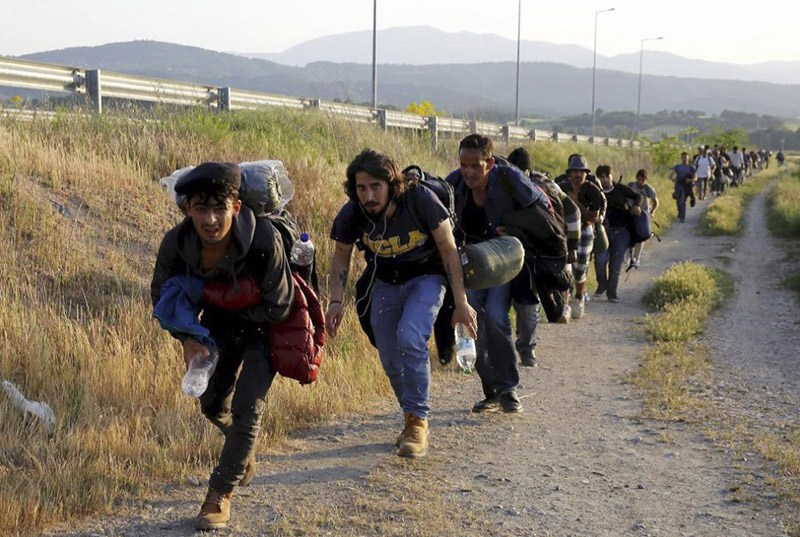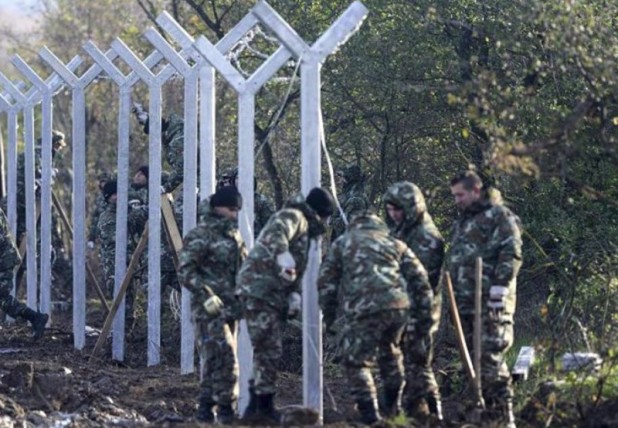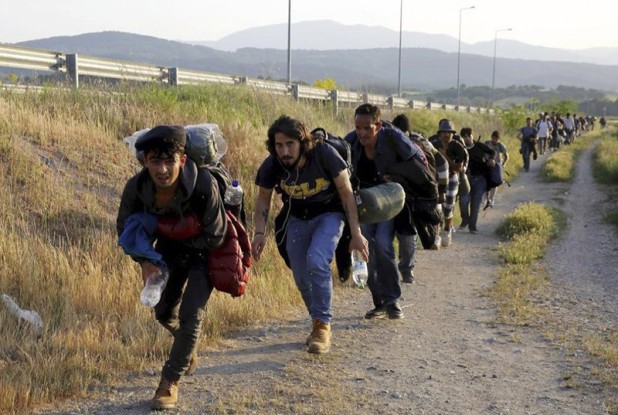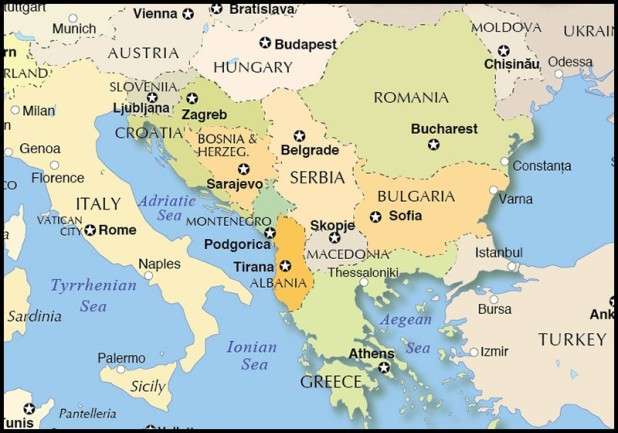The New Observer
January 28, 2016
The republic of Macedonia has announced that it will, as of January 27, only allow 800 invaders per day to cross its borders to proceed north into Europe—a move incorrectly reported by the Associated Press as a “complete” border closure.
Doubtless this incorrect AP report will be repeated by the controlled media, but the truth is that the only real change in policy is in the numbers which will now be allowed through Macedonia.
The Macedonian move follows talks earlier this week between that government and European Union officials in Brussels where the operational details of a joint deployment of police forces along its southern border with Greece was worked out.
Macedonia is not a member of the EU, but pressure from the Austrian government, which last week announced that it was “capping” the number of “asylum seekers” it would allow in at “37,500 per year,” has meant that the flow has to be slowed down somewhere.
Prior to Wednesday’s announcement, only Syrians, Afghans, and Iraqis who stated their intention to seek asylum in Austria or Germany were allowed past the border controls into Macedonia.
This will still be the case, but now the numbers will be limited to 800 per day, and soon, the Macedonians said, lowered to 600 per day.
In this way, the EU actually thinks it can slow down the invasion. In reality, it will only increase the pressure on Greece, which is in a no-win situation. Earlier, the EU threatened Greece with expulsion from the Schengen zone for “failing to protect the EU’s southern border,” but when it did, the same EU liberals condemned Greece for “human rights abuses” and sent aid units to help the invaders ashore.
The main crossing point into Macedonia from Greece has been the town of Idomeni, where already since December last year, thousands of Moroccans, Iranians, Pakistanis, and other nonwhite chancers have either tried to sneak across the border, or physically attack the Macedonian border guards in their attempts to break through.
The Greek police have now started busing many of these swindlers back to camps in Athens, but of course they almost all vanish and simply reappear at the Macedonian border—this time not trying to cross officially, but using late night illegal crossings to pursue their road north.
The move will also result in increased border pressure upon Albania and Bulgaria, the last two geographic borders with Greece, where the majority of nonwhite invaders seeking to enter Europe via the “Balkans route” make their first landing.
To date, Bulgaria has been protected more by luck than design. In 2015, it completed a ten-foot high wall with barbed wire along most of its border with Turkey, and large parts of its border with Greece are made up of natural obstacles such as rivers.
Albania, on the other hand, has poorly developed infrastructure, and for that reason has not been favored by the invaders in their quest to reach the welfare money pots of northwestern Europe. That is likely to change following the Macedonian decision.
The restriction of the official numbers allowed through Macedonia is, therefore, only likely to affect those nations least able to cope with a renewed influx: Bulgaria, Albania, and Greece. It is a typical half thought-out measure.
The only real solution is to simply enforce all previous international agreements on asylum, which state that those genuinely fleeing in fear of their lives have the right of asylum in the first safe country they reach—and nowhere else. For Afghans, Iraqis, and even Syrians, to have crossed five or six safe nations to get to Europe, is a clear breach of these internationally accepted rules, and until those are properly enforced, nothing will stop the nonwhite invasion.



